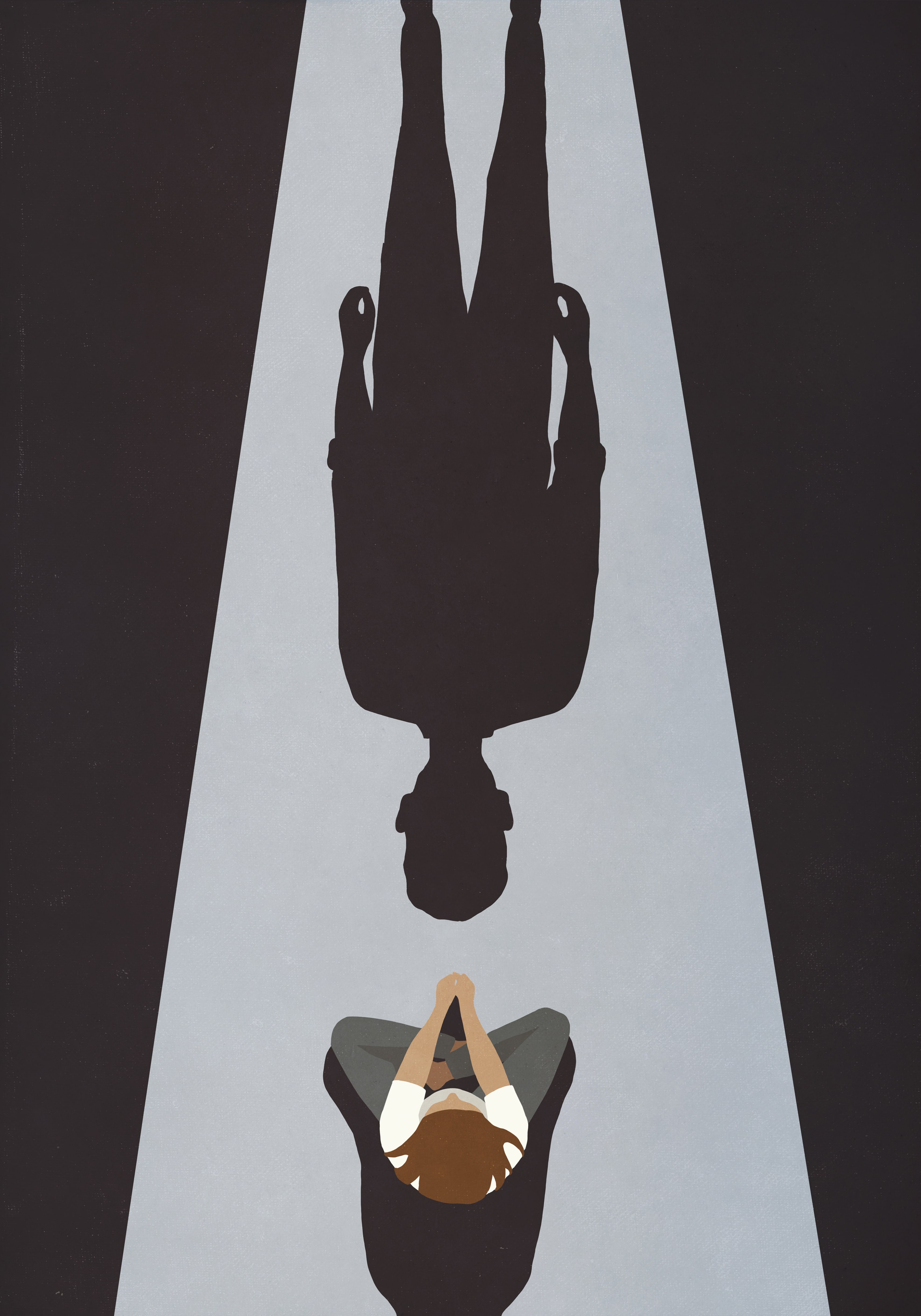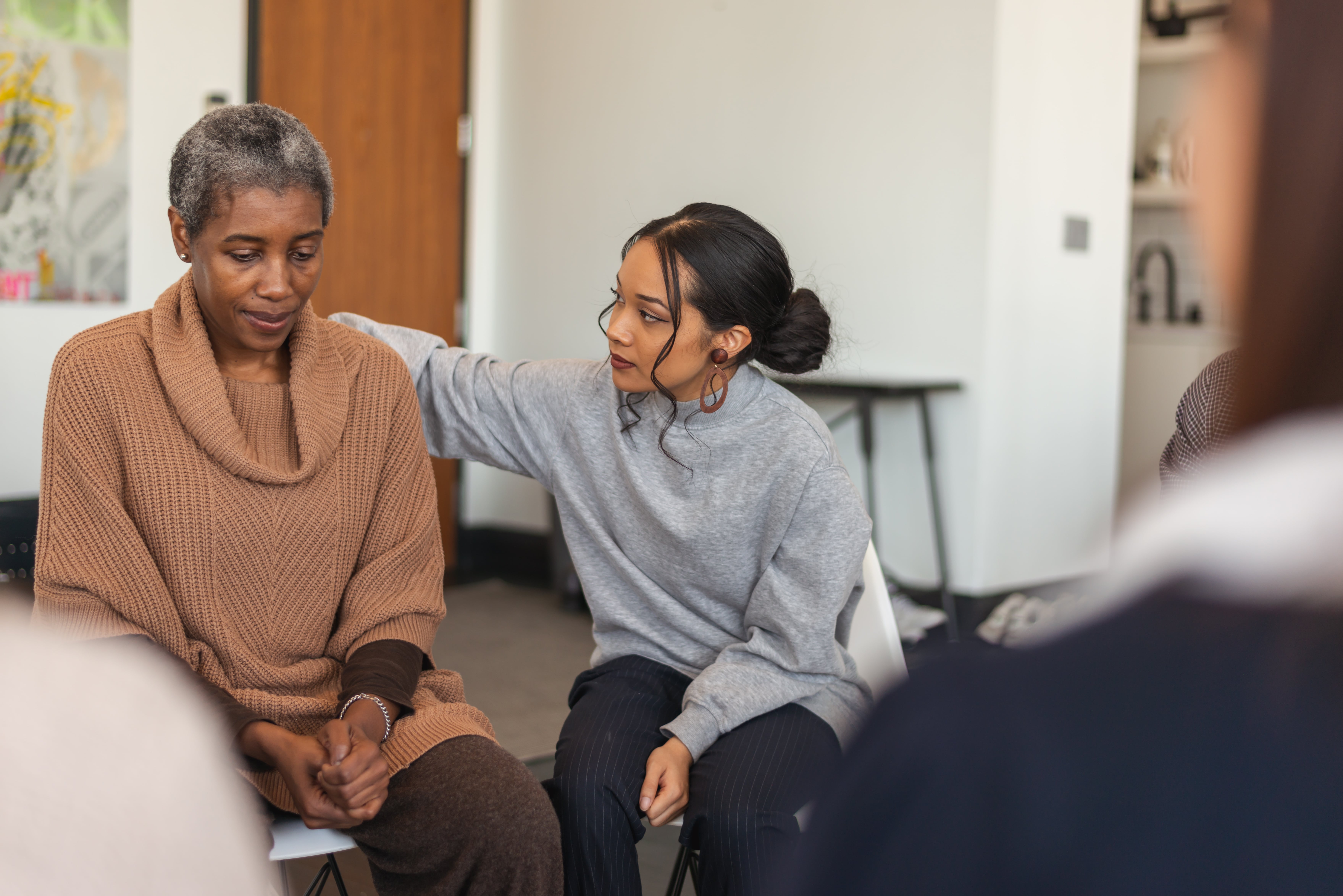You can search for courses, events, people, and anything else.
"We spent the whole day together, but she didn’t tell me anything about her life or abuse. You could see some signs though."
When Mugabo* came to a village in Rwanda looking for a wife, 23-year-old Pascaline Isheja* was swept off her feet. Overlooking the 30-year age gap, she believed that Mugabo was rich, had a good job and promised a better life in Australia. She agreed to marry him.
Isheja’s expectations, however, plummeted soon after moving to Sydney. Her new husband was a factory worker, not a doctor as he had claimed; and far from having money, he shared a flat with three others. The deception went even deeper, she discovered, when it came to light that he had a previously undisclosed former marriage and two children.
Mugabo quickly became jealous and controlling, refusing to give Isheja money, limiting her social contacts and keeping tabs on her when she went out. On the worst days, he would hit her.
But Isheja just kept her head down and carried on. "We have this culture of hiding things and saying if you’re not lucky to have a good husband, that’s just your destiny. You don’t divorce or separate," says Nadine Shema, co-founder of the Great Lakes Agency for Peace and Development (GLAPD), a Sydney-based nonprofit that focusses on helping migrants and refugees from Africa to settle in Australia.
Shema is a fellow Rwandan, and was one of Isheja’s first friends in Australia. She recalls a day early in their friendship when she had invited Isheja over to her house. "We spent the whole day together, but she didn’t tell me anything about her life or abuse. You could see some signs though."
But things soon came to a head: Mugabo returned home from work early that evening and when he appeared at Shema’s doorstep, Isheja began visibly shaking. "You could see she was so scared," recalls Shema. Nonetheless, Shema invited him in for dinner, but Mugabo was so impatient to leave that he began shouting and violently yanking his wife’s hair.
Around 2015, Shema and her GLAPD colleagues began noticing a steady rise in the number of women approaching them for help from within the diaspora community from Africa’s Great Lakes region, encompassing the nations of Rwanda, Burundi, the Democratic Republic of Congo, Kenya and Uganda.
"That’s when we started thinking that we should do some research to try and showcase how big the problem is," Shema says. Her team reached out to the Sexualities and Genders Research group at Western’s School of Social Sciences. Dr Selda Dagistanli, a senior lecturer of criminology and policing, stepped in to lead the project.
"GLAPD approached us with the intent of getting some research done so that they could put this on the radar of support services, and perhaps get some funding to assist their communities," recalls Dagistanli.
Need to know
- In Australia, one in four women experience domestic violence. But those migrating from the Great Lakes region in Africa tend to be more vulnerable to abuse.
- A study led by a team from Western identified the main contributing factors behind this trend.
- Their recommended solutions include building trust and implementing education programmes for the community and key stakeholders.
MANY FORMS OF ABUSE
Domestic violence is a pattern of abuse where a person seeks to control or dominate another. Apart from physical assault, it can take on many forms — including verbal abuse, emotional manipulation, marital rape and withholding finances. "Some women don’t understand what domestic violence is and if you ask them if they experience it, they’ll say: 'Oh he doesn’t hit me,'" says Shema.
The impact of domestic violence can be severe. It is linked to depression, anger and shame, often resulting in long-term emotional and psychological trauma. In Australia, domestic violence is the leading contributor to illness, disability and death in women aged 18-44.
Dagistanli and the team launched a study to determine how members of the African Great Lakes diaspora, as well as welfare professionals, viewed and responded to domestic violence. "One key question was how can we break down taboos around reporting and build trust within these communities, so that the women feel comfortable talking about domestic violence?" she says.
COMPLEX FACTORS
Researchers from Western trained their GLAPD collaborators to conduct a series of focus group sessions. Volunteers from Rwanda, Burundi, Congo and Uganda took part. Dagistanli’s team also interviewed other stakeholders such as healthcare professionals, frontline workers, and community pastors.
The findings were illuminating. The researchers discovered that one factor contributing to the high rates of domestic violence is the cultural dissonance migrants experience upon moving to Australia.
"Our culture is a patriarchal one where men just provide money for the household but don’t do housework," explains Shema. Back home, a wife often has extended family, close-knit community members, house boys, maids, and so on, to help her with the children and household chores. But these support lines disappear in Australia "and some men stay the way they are, so the woman has to do everything, which is very overwhelming."
"The wife might ask: 'Can’t you see that I need help here?' And that becomes a trigger for fights," she adds.
The lack of familial support also manifests in other ways. "There is a cultural reluctance to seek support outside the extended family," says Dagistanli. Airing your 'dirty laundry', even among close friends, is considered shameful and taboo.
Instead, it is the extended family that steps in to help a troubled couple. A battered wife, for instance, might seek shelter at her parents' home, a practice called 'kwahukana.' Her husband would then have to win her back by performing a 'gucyura' ceremony — visiting his in-laws, accompanied by friends and family elders, bearing gifts to seek forgiveness.
"This sort of tradition keeps things in check back in their home countries," says Dagistanli. But without extended families to intervene in their new home, problematic and dangerous situations are more likely to develop.
Additionally, the researchers discovered that the threat of domestic violence is further compounded by other social and structural factors, such as men feeling disempowered in low-paying jobs. Still, the majority of cases (up to 80% according to one service provider interviewed), often go unreported because of a sense of mistrust towards Australian institutions, such as the police, and concerns about racism.
"Some women don’t understand what domestic violence is and if you ask them if they experience it, they’ll say: 'Oh he doesn’t hit me.'"
EDUCATION AND TRUST
One solution is to "build bridges and trust between mainstream and diaspora communities," says Dagistanli. To do so, frontline workers, police, and external support service providers need to be educated so that they can provide "culturally sensitive, non-paternalistic, and meaningful support."
But members of the Great Lakes community have to be educated too, she says, "to learn about the systems and support available here." Involving church leaders in such training would be a "huge draw card" because they are greatly revered in the predominantly Christian diaspora community.
Since publishing their findings in a report two years ago, the team has managed to attract funding to raise awareness, and provide education and support to the women and communities affected. GLAPD has now produced a series of videos for its website, aimed at raising awareness around domestic violence. It has also hired a support worker dedicated to handling domestic violence cases, and an educational officer who conducts workshops in the community.
The education revolves around teaching women about their rights, how to seek employment, and how to set up their own bank account, among other practical advice.
Empowered, Isheja eventually got a job and divorced Mugabo. She now lives happily in a different state.
The impacts of this research have also been evident within the community. As Shema says: "You can see that people are now a little more open and understanding."
* Names have been changed to protect privacy
Meet the Academic | Dr Selda Dagistanli
Selda Dagistanli is a Senior Lecturer in Criminology at Western Sydney University. Dagistanli’s research focuses on racial, gendered and cultural marginalisation within socio-political, legal and other institutional spheres with a particular emphasis on exploring social and institutional (dis)advantage as experienced through the intersections of race, gender and class. These research priorities have been realised across several multidisciplinary projects that concentrate on individual and collective responsibility for gender violence, and cultural, social and institutional understandings and responses to gender violence. Recent projects include a qualitative study (with Huppatz) into gender equity and violence (including symbolic violence) against women in the Australian Defence Force and ex-servicewomen in the Department of Veteran Affairs. Dagistanli has also led a qualitative, community-led study into gendered, racialised and classed understandings and responses to domestic violence among the African Great Lakes Communities of Western Sydney. Prior community-engaged projects include exploring everyday Shari’a practice among Muslim communities in Sydney and New York (with Possamai, Voyce and Turner). The broader impacts of Dagistanli’s gender violence expertise are evidenced in invitations to present to the Women’s Legal Service, NSW, media requests to comment on racialised gender violence cases, requests to act as an expert witness in a legal case involving racial profiling, and to provide legal supervision and consultation for the Legal and Policy officer for Rape and Domestic Violence Services, Australia (now known as Full Stop) on law reform and policy issues around sexual violence.
Credit
Future-Makers is published for Western Sydney University by Nature Research Custom Media, part of Springer Nature.
© Malte Mueller/fStop/Getty
© FatCamera/E+/Getty
© Ross Sneddon on Unsplash





